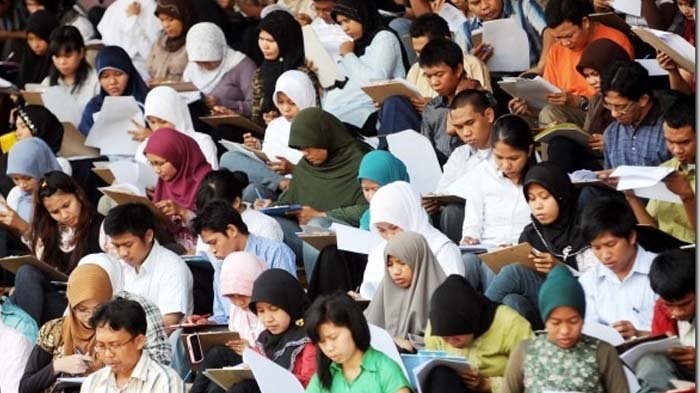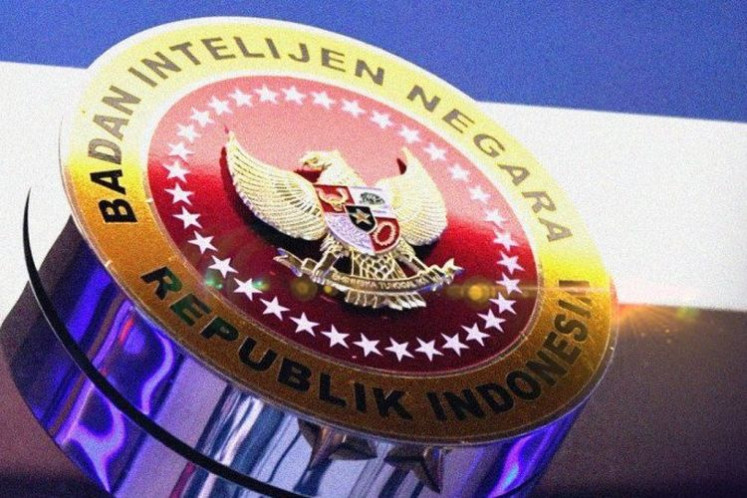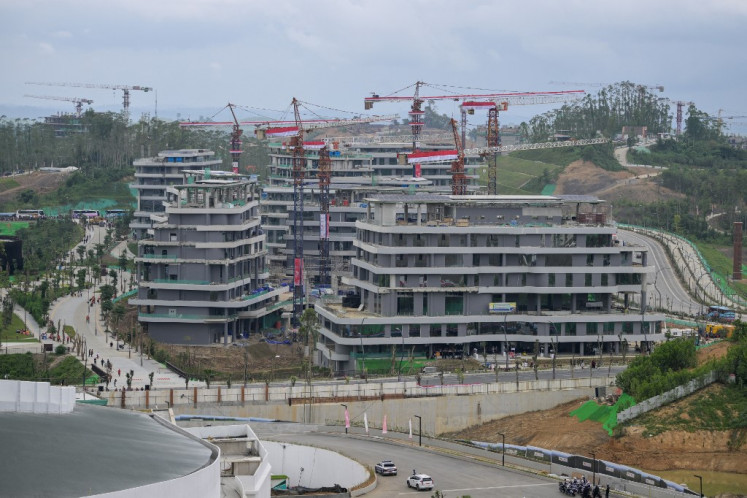Can we improve the quality of Indonesian public service?
Statistics Indonesia (BPS) reveals that Indonesian civil servants in 2017 exceeded 4.3 million.
Change text size
Gift Premium Articles
to Anyone
 Illustration of CPNS admission test (tribunnews.com/-)
Illustration of CPNS admission test (tribunnews.com/-)
R
ecent applicants to Indonesia’s civil service entered a much improved process with online mechanisms from registration, selection test to announcements, leaving minimal possibility of cheating and nepotism which had been a fundamental, rampant problem in the past. Yet it seems many people still think the quality of public service in Indonesia is substandard.
Statistics Indonesia (BPS) reveals that Indonesian civil servants in 2017 exceeded 4.3 million, among which nearly 80 percent were assigned to local governments, while the rest are allotted to ministries and other departments under the central government.
In the past, these civil servants’ performances were evaluated through an annual review known as DP3 (employees’ performance assessment) which arguably uses vague and subjective criteria focusing only on assessing civil servants’ behavior. Also, it does not link performance to the organization’s performance and strategic objectives. This factor is believed to contribute to the assessment’s minimal impact on civil servants’ performance.
Along with the spirit of bureaucratic reform, a new individual performance review was introduced in 2011 through a 2011 government regulation. A more clear mechanism allowed for more clear assessment of civil servants’ actual performance and behavior; hence the contributions of a civil servant towards the institution’s objectives could be better linked with the rewards and punishment system.
In reality, after more than five years since its introduction, this new performance review mechanism still faces many challenges. Based on my study in 2017 which surveys nearly 200 civil servants from the central and local government, three main issues contribute to that weak performance review.
Firstly, performance review dialogue which includes feedback giving process from the supervisor to the civil servants is perceived ineffective in improving employees’ performance because the feedback was often either bias or vague. Often the dialogue never happened.
Secondly, the performance review system has a weak link with the rewards and punishment system, let alone to the human resource development system. Worse, the practice of favoritism and nepotism are still considerably strong especially in awarding of promotion and rewards in many institutions.
Lastly, most respondents believed the performance review aligns the organization’s strategic goals with civil servants’ performance goals, performance review dialogue and reporting, is administratively burdening. Hence, an online reporting submission may ease the situations.
These three main issues may prove that the problems of the performance review system lies mainly at the implementation level and should be dealt with immediately.
There is no easy cure for such problems, other than a strong leadership, as proven by a few institutions which have been successfully implementing this performance review system. Strong leadership will also drive the importance of linking the organization’s strategic goals with individual performance and also connect it to the human resource management system, including the internal stick and carrots mechanism.
In Indonesia, civil servants are known for stable income and security in terms of tenure, in addition to a considerably respectable social status, as reflected in high interest each recruitment time.
Unfortunately, the issue of permanent tenure may be the precise obstacle to the performance review system; it will become a toothless tiger, because regardless of its effectiveness, the system will hardly affect the security of this profession. That situation is different from more advanced countries such as Australia and United Kingdom, where the performance review process is well-implemented amid no permanent tenure policy for the civil servants; therefore, the turnover of the civil servants has been high, as this profession has become competitive.
Combination between a careful process of civil servants’ recruitment which aims to select the best graduates to be civil servants and a solid implementation of individual performance review system may instill pride towards the civil servants' profession. Hence, one day more people would apply as civil servants not only because of stability and security but more on the passion for performing and contributing to the betterment of Indonesia’s public service.
***
The writer graduated from The University of Melbourne, Master of Public Administration (Enhanced). He is a policy analyst at the Directorate General of Customs and Excise, Finance Ministry.









